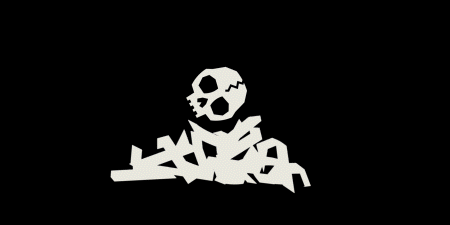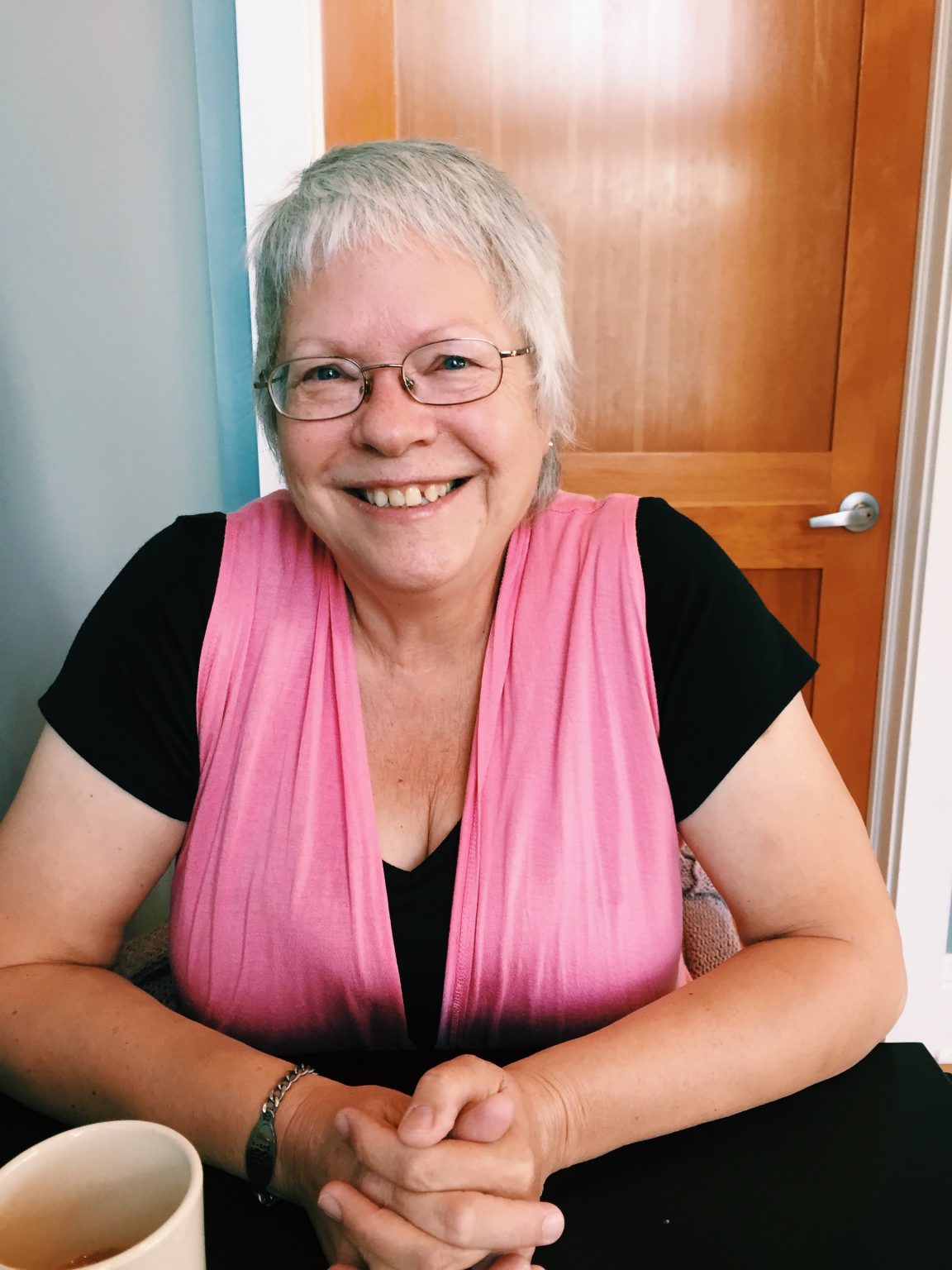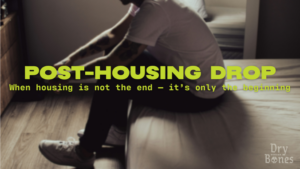Right now we have “home” on our mind at Dry Bones. I mean, it’s a pretty normal thing for us to be thinking about “homelessness,” but thinking extensively about “home” is another matter. It is the theme of our fundraiser, the theme of our conversations, and the theme of our personal work.
Recently, a woman named Joyce has joined our staff. She is a life coach meets therapist meets wise sage. Much of her work with our community has to do with giving people the tools to find an “inner home,” a safe place where we can go to move through difficult, unfamiliar, anxiety-ridden circumstances. We all need an inner home.
Though I have never been into Joyce’s apartment, the space she has created in our meetings together has felt like the most hospitable of environments. The effect her presence has had on me feels twofold. First, I am learning tools to create these hospitable, home-like, empowering spaces, where people feel safe to love themselves well. Second, I am consistently asking people, “Have you met my friend Joyce?”
In the street community, “therapy” can function like a curse word. Since many have been in systems their whole lives, therapy has been court ordered or a part of a mandated treatment plan. For many of my friends on the street, this has often been correctly and incorrectly read as “you have a lot of problems which you need to go fix through therapy,” or worse “you are a problem.” The system has felt cold and inhospitable. Though this undoubtedly has not been the intention of those prescribing a treatment plan, perception is a large part of creating our realities.
It is a difficult dilemma. People need assistance, but they also need to feel empowered. Freedom and effective action are a big part of empowerment. We need to know that we can make a choice, and that that choice could be effective. We don’t need to feel forced into naming what is going wrong. Most people who have lived on the streets are already highly aware of what is going wrong and have had multiple diagnoses assigned to them since childhood. These diagnoses, however helpful at times, can never serve as an inner home. The diagnosis isn’t always a safe place, and it certainly isn’t an identity.
Enter Joyce. Introducing her as my friend and as a wise counselor, I have found that many of my friends on the street are disarmed by her presence, and a few moments with her reinforce that she is interested in the gifts and tools that they already carry—the inner home that they can create and settle into. She is practiced at and naturally capable of helping people move into spaces of familiarity and freedom, where they can do the work they need to do to for that moment, and for the unfamiliar future. She empowers us with tools to take our health, job, and lives into our own hands. And she does it in a way that is strengths-based, de-stigmatizing, and divine. Her presence has become a necessary part of our community’s life and health, renewing our sense of hospitality.
As I’ve mentioned before—hospitable spaces bring with them the reality that you never know what you are going to get. Safety, familiarity, and home are necessary spaces because the reality of instability, danger, and homelessness cannot be denied. Whether we have houses or not, we are all in need of an inner home, a safe place, a space we can commune with the Divine, a beloved place where we can sense our own worth and value.
What does your home look like? How can you create hospitable spaces for and from your own safety and your own inner abundance? If you are a part of creating systems or structures, how can you do that in a way that is empowering and hospitable?
These are the social and spiritual challenges of our lives and of our society, I think.





